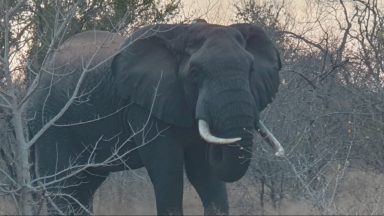As the glowing red hue of the African sun rises against an inky blue sky, the Peace Parks crew are in awe of what they see in the Simalaha Community Conservancy. The vast, open, grass-filled plains are dotted with an abundance of wildlife, including puku, red lechwe, wildebeest, zebra and defassa waterbuck, to name a few. In the quiet hours of the early morning, the team takes a moment to reflect on how far this conservancy has come.
The Simalaha Community Conservancy in Zambia is situated within one of six key wildlife dispersal areas that form a part of the Kavango Zambezi (KAZA) Transfrontier Conservation Area, the largest terrestrial transboundary protected area in the world. Aside from being an essential and ancient migratory corridor wildlife still use today, it is unique in that the community both owns and manages the land and natural resources within it.
Since the establishment of Simalaha in 2012, 1 700 animals have been rewilded into the conservancy, and these numbers have steadily grown to an estimated 3 500. Instrumental to the successes achieved here is the protection of wildlife. To this end, significant effort has been put into training community members to become wildlife scouts, equipping them with the knowledge to carry out patrols throughout the conservancy. The main aim of the patrols is to monitor wildlife and identify and assist with any poaching incursions – of which there have been very few to date.
This conservancy serves as a shining example of how a sustainable wildlife economy should look, with the land providing for the community through tourism and job creation and the community being the guardians of the very same land.
Peace Parks Foundation works closely with the Zambian Government and the people of Simalaha to develop the area to the benefit of life within it. As part of the Global Rewilding Alliance, Peace Parks and partners work to accelerate and mobilise the power of people working together to rewild the Earth and stabilise the climate.
Keep watching Peace Parks TV to see how Simalaha continues to succeed.


